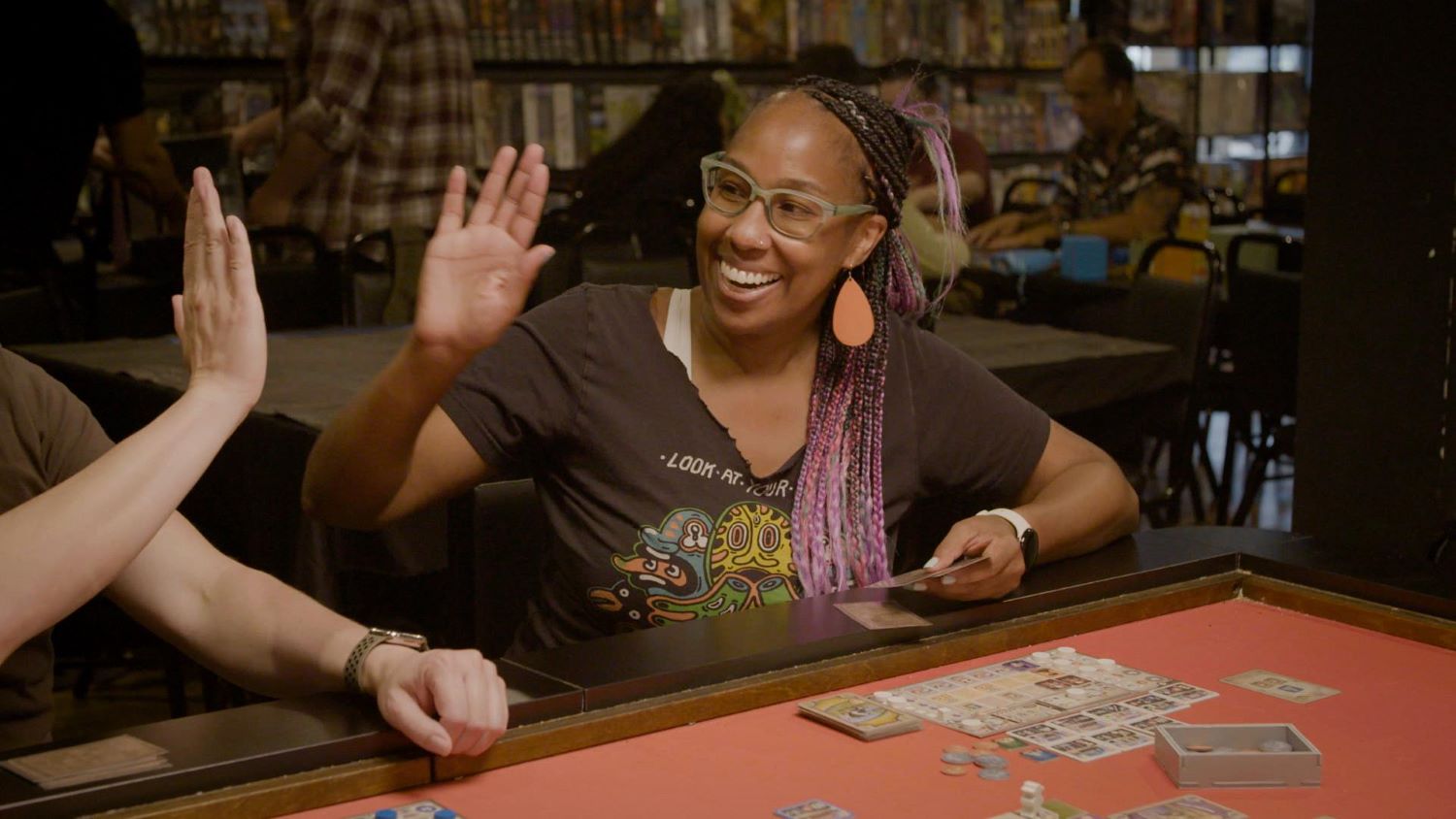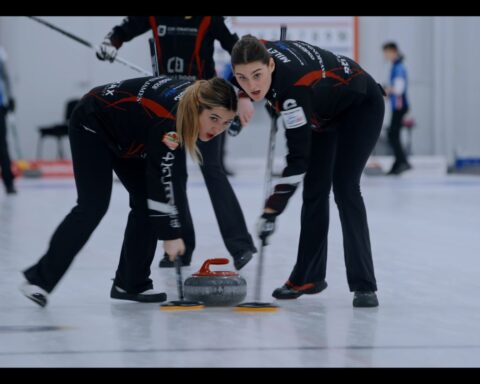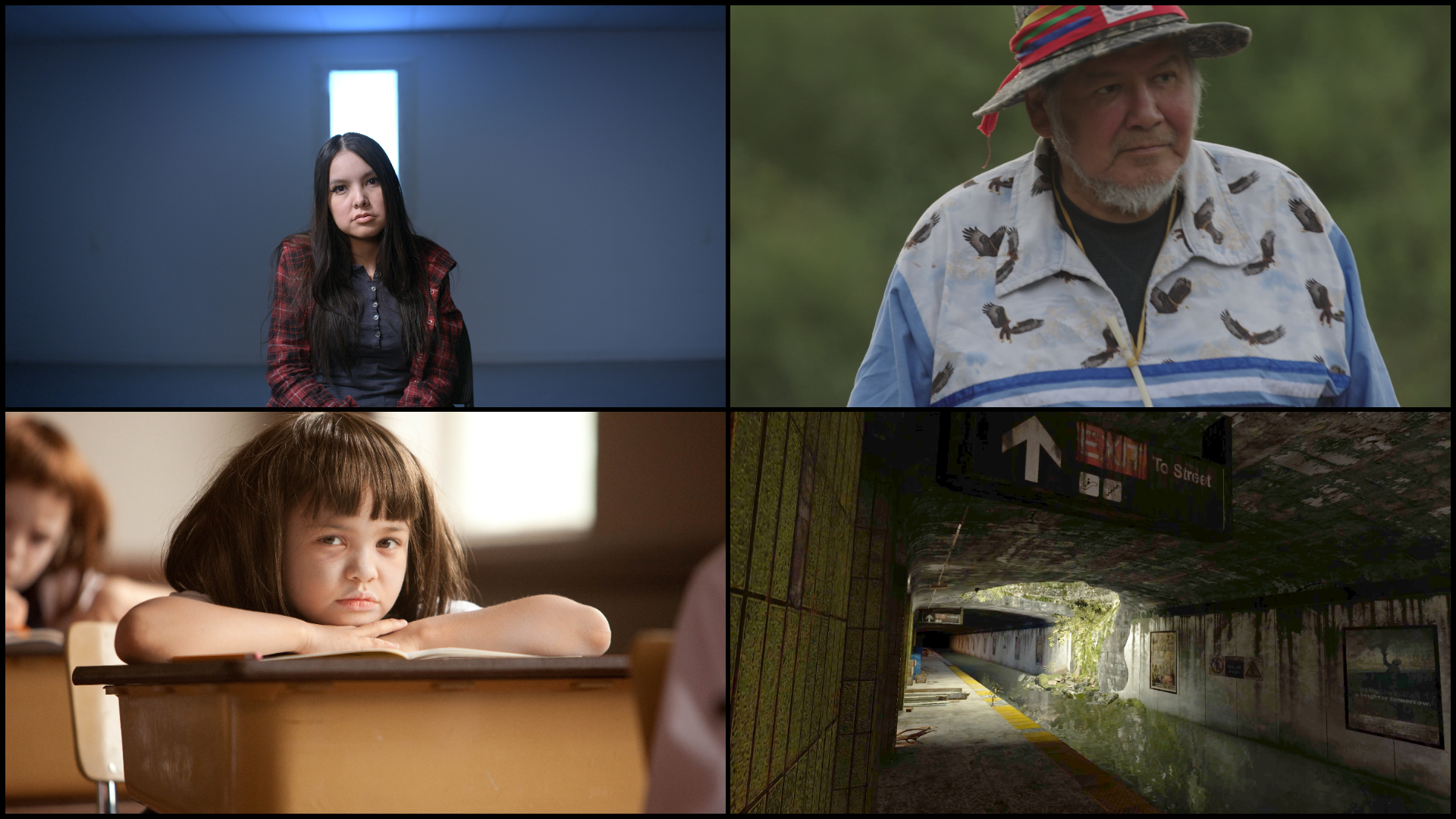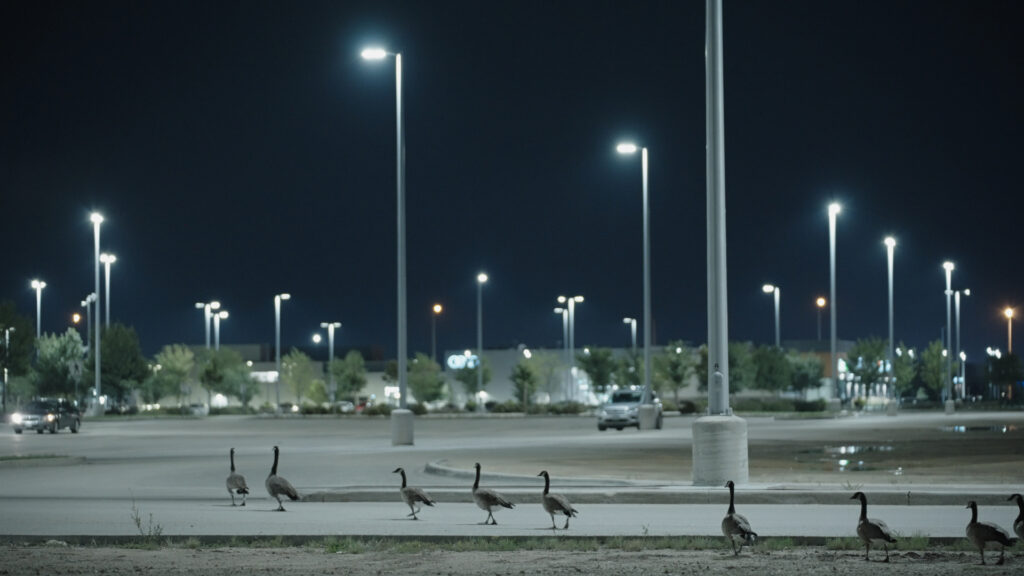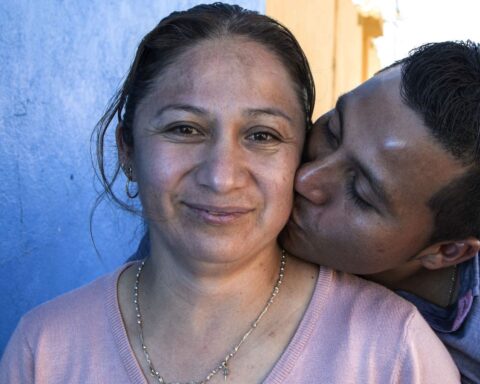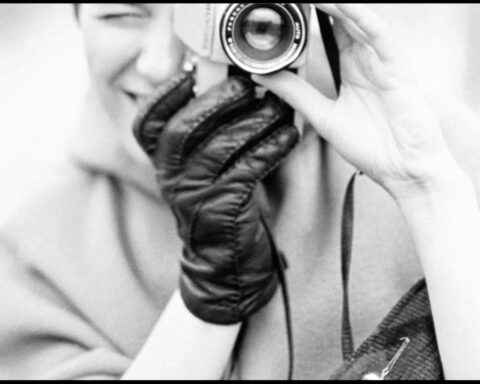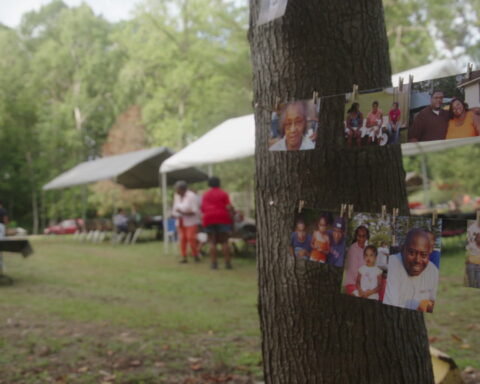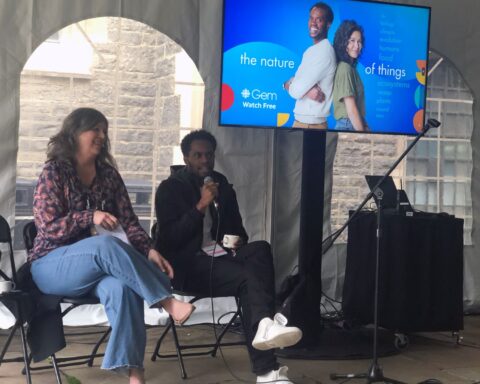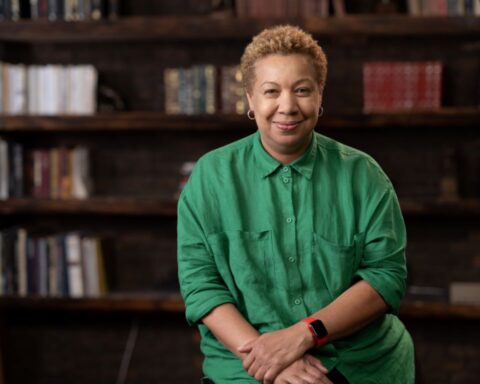For many adults, afternoons spent playing board or card games have become a thing of the past. Many will fondly remember bickering over hotly contested games of Monopoly or Uno, yet players are encouraged to eventually leave them behind in pursuit of more noble professions. However, right under our noses, a subculture has grown out of the notion to do the exact opposite: to embrace these games, otherwise known as “tabletop games,” as works of artistic expression and community-building. Despite having been active for decades, growing popularity in the wake of the COVID-19 pandemic, and YouTube channels like “Geek & Sundry” and “Critical Role,” few films have documented this pastime’s undeniable resurgence.
Enter Simon Ennis (Lunarcy!) and his new film, The Hobby, which just premiered at this year’s edition of the South By Southwest Film & TV Festival (SXSW). The Austin-based festival hosted 10 Canadian premieres, half of which were documentaries, but Ennis’ film feels especially apt for a widely intersectional, globally-recognized conference. Much like SXSW, where the worlds of tech, film, music, and culture collide, Ennis’ directorial bird’s-eye view proves the world of hobbyist gaming is similarly filled with people from all corners of life. From the eclectic crowds that populate gaming conventions like Gen Con to the designers behind beloved new-wave board games such as Wingspan and Sagrada, the allure of the subculture’s scope is quickly apparent.
However, after its initially broad overview, Ennis’ directorial approach reveals to be far more interested in the personal. The Hobby follows a swath of unique voices in the gaming community through their efforts to contribute to it, including avid content creators like Tom Vasel of website The Dice Tower and BoardGameGeek’s Candice Harris. However, it also spotlights lesser known voices, such as John Hague, a custom broker who decides to break into game design. Perhaps the most intimate subject is Ennis’ personal friend, Dan Corbett, who begins his hobbyist journey competing in the World Series of Board Games. Like a mason constructing a house brick-by-brick, Ennis compiles a collection of voices together that culminate in a beautiful look at the meaningful pursuit that is tabletop gaming and its many avid players.
POV spoke with director Simon Ennis and subjects Candice Harris and Dan Corbett while on-the-ground in Austin, Texas to discuss the documentary’s inception, what it feels like being followed by cameras for the first time, and what accounts for the tabletop gaming’s passionate following.
POV: Larry Fried
SE: Simon Ennis
CH: Candice Harris
DC: Dan Corbett
This interview has been edited for brevity and clarity.
POV: What struck me most when watching The Hobby was the realization that this is one the first documentaries of its kind despite being long overdue. The tabletop community has never had a cinematic spotlight quite like this, certainly not on a festival stage as large as SXSW, yet the community has been flourishing for years. Simon, what made you decide to take this on?
SE: The impetus to make the film came from the first time I went to Gen Con in 2018, when I barely knew that much about this stuff and was curious about it. About a year before that moment, I had no idea this world existed. By the time we rolled cameras, we were deep into the hobby ourselves. This is a huge world. It’s an amazing, giant subculture and nobody knows about it. I had to remind myself of who I was before I got into this stuff just to make sure that we were representing the hobby world well, but also [that the film] would play equally well to people who don’t know any of these games, or even don’t like them. I had to constantly be like, “Okay, there’s gamer me, and there was pre-gamer me, and both of these mes have to enjoy this movie when it’s all said and done.”
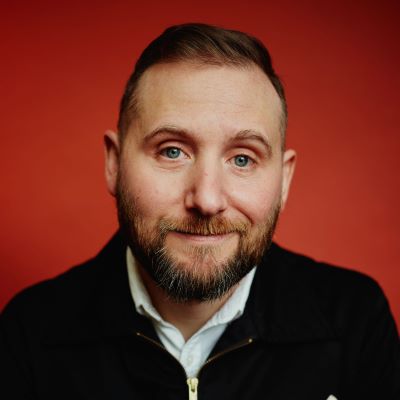
POV: Based on the documentary, I know Simon and Dan had been friends prior to the start of shooting. Candice, how did you come aboard the project?
CH: When I met Simon, he told me he was making a documentary about the hobby and I thought that was super cool. I had no idea that he was going to eventually ask to interview me and be part of it. We met at an invite-only convention called The Gathering of Friends that happens once a year in Niagara Falls and we ended up at a table together with 15 people going out to eat. We were paired up to get a pitcher of beer, so we bonded over that and got to talking. After dinner and in the days to come, we played some games together and had a blast.
SE: The one thing you’re missing is that I’d been working on the movie for about a year and I was using Candice’s show where she interviews people as casting [research] for the film. If I was interested in a designer, I’d go to Candice’s show because she has these hour-long interviews with all of them. I would know if they were interesting and well-spoken, had a good story, would look good on camera. So, I was like, “I owe you a pitcher of beer.” [All laugh] Then, [she] told me the story about how most people knew [she] as a drummer and then [she] got burnt out on it and found gaming. That, to me, sounded like a really interesting story.
CH: They turned my living room into a studio. They were putting a light in from the outside of our patio on to the games. I don’t know what I was expecting but I was blown away by their skills. Simon especially does a great job of asking questions. There’s a moment where I tear up––going into that interview, I was not expecting to get into that kind of emotional headspace.
SE:My general approach [to shooting] is I just hang out. I was just floating around from place to place. Sometimes, I would just have a smaller camera. For bigger shoots, Jesse [McCracken], my cinematographer, would be there and we’d have two cameras, but I have a camera that’s just a bit bigger than a DSLR. I don’t really make a big deal of what’s going on. If we do a sit-down interview, now we’re turning it up to another level, even though it’s just a crew of two or three. I like to keep things as small and intimate as possible.
POV: This feels like a by-product of the gaming community finally getting a spotlight. It feels so big to them, but anyone who has worked in or has seen many documentaries can tell that this production is a small affair.
DC: We did a lot of early shoots that didn’t make it into the film where it was just me and Simon and then sometimes Jesse. We’d be at places and Simon would say, “Are you cool with us filming you?” We went to Gen Con, and I’d never been to a board gaming convention, but I’m walking around and being followed by a camera. There were all these people looking at me like, “Who is this dude?” [All laugh.] It was very cool, but also intimidating and weird because people maybe thought that I was somebody or thought I thought I was somebody. There were a ton of times where I would sit down to play with total strangers and then Simon would ask everyone at the table, “Hey, are you okay with us filming this game?” I felt like I was being set up in this weird way because people must have thought, “Oh, this guy is going to be amazing.” Meanwhile, I’d maybe played this game once or twice.
POV: Did those people start getting anxious about their playing once the camera started rolling?
DC: I feel like it did affect some people. Funnily, one thing that didn’t make the film was when we filmed a game of Terraforming Mars at the first Gen Con we went to. That was an open game that I’d signed up to play. We sat down to do it and there was a guy at the table wearing a Terraforming Mars t-shirt. I had played it a bit by this point in time, but the two guys sitting beside each other, one guy was saying, “Oh yeah, if you have this card, you pair it with this and do this sick combo” and I’m just sitting there pretty quiet. I’m cracking jokes or whatever, but I definitely felt like they were very aware that the camera was on.
SE: In the end, you won, which was crazy. It went to a double tiebreaker.
POV: That’s wild!
CH: There are a lot of people in the board game world who know who I am, but I still felt nervous being followed around by cameras. When we were doing the Gen Con shoot and I’m walking through [Academy Games and GMT Games] like, “Ahh, don’t mind me!” They know who I am, I have a different look than a lot of people there, so it was funny that now I’m walking in with a camera crew!
SE: I’ve seen you at Gen Con. People were stopping you every five minutes to say how much they love you! I don’t think that the camera actually put more of a spotlight on you than you already have.
POV: The intersectionality of the gaming community is featured very prominently in this film. Every subject we meet says a different permutation of, “Yeah, I love movies,” or “Oh, I collect TV box sets,” or even “I’m a lawyer,” but they all follow it up with, “and I also love games.” Was that conscious?
SE: Yeah, that was absolutely intentional. That was very much me wanting to make sure that I was still making a film for me back in 2017/2018, before I really got into the world of the hobby. Every board gamer knows a lot of their friends don’t know games, or don’t like games, or even are annoyed by them. I wanted to make sure that anybody we talked to had a really interesting, relatable hook for their personality. If it was Dan, it was our friendship and Dan being the biggest collector of all kinds of things that I’ve ever known. If it was Candice, it was the story of being a musician and getting burnt out [by] that and finding something else to nurture her. It’s like what [gaming icon] Tom Vasel says early on in the documentary. “What’s important about gaming? Nothing. It’s about the people.” I knew I wanted to make a movie about people, not about games––as much as I love the games. Hopefully, if you watch it and you’re not a gamer at all, you’ll think “This is a wonderful world, I love all these people and maybe I’m going to go and buy Wingspan or Terraforming Mars or Sagrada and maybe I’ll get into this, too.”’
CH: I played Uno and Sorry! and Stratego growing up, and I’ve always had a good time doing that, but when I discovered the wider world of board games, I was just so excited by their designs. I’d never seen anything that felt like that and it became addictive. When I find a [game] designer that I like, I want to play every single game that they’ve made. I do the same thing with music. I was feeling very depressed when I discovered board games but they lifted me up. I got excited by sitting down at a table, getting some friends together, and finding a game. Eventually, I needed board game friends because I wanted to play so much and there’s only so many times you can say, “Hey [other] friends, come on over, please let me show you another game.” I found board game friends and for years I considered them just board game friends, but now some of those people are my best friends.
DC: I love worlds that have their own language, that have their own ecosystem. In all of the other communities that I’m a part of––the music collecting community, I buy and sell books, all these sorts of things––you get to talk to people who are passionate about their thing. The way you relate over your passion, to me, makes for the most meaningful conversations and interactions you’ll have. With gaming, you sit down with a table of strangers and you have this common thing. It’s full of unique language and you have all these points for relation with each other. People who can get this passionate about [games] are likely to find passion and interest in other things as well. These are people who want to dive in headfirst and surround themselves with something they care about.




